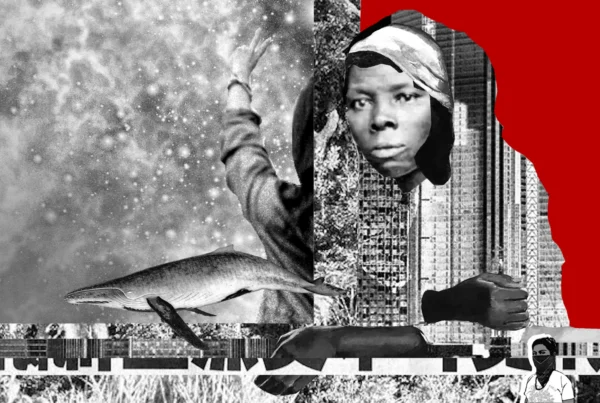On 22 April 2017, the March for Science will be held in Washington, D.C. and over 500 other cities across the world. ENTITLEblog endorses the call by original peoples and their allies to march not just for Science but for Sciences; to acknowledge the multiple other ways of knowing that play an essential role in advancing knowledge for the health of all life. Read on to sign the letter of support.

Native Nations Rise: indigenous peoples and allies marching on Washington, D.C., 10 March 2017. Source: wildlensinc.org.
March for Science – Letter of Support
To the March for Science, DC and satellite marches across the nation and the world:
As Indigenous scientists, agency professionals, tribal professionals, educators, traditional practitioners, family, youth, elders and allies from Indigenous communities and homelands all over the living Earth we
Endorse and Support the March for Science.
As original peoples, we have long memories, centuries old wisdom and deep knowledge of this land and the importance of empirical, scientific inquiry as fundamental to the well-being of people and planet.
Let us remember that long before Western science came to these shores, there were Indigenous scientists here. Native astronomers, agronomists, geneticists, ecologists, engineers, botanists, zoologists, watershed hydrologists, pharmacologists, physicians and more—all engaged in the creation and application of knowledge which promoted the flourishing of both human societies and the beings with whom we share the planet. We give gratitude for all their contributions to knowledge. Native science supported indigenous culture, governance and decision making for a sustainable future –the same needs which bring us together today.
As we endorse and support the March for Science, let us acknowledge that there are multiple ways of knowing that play an essential role in advancing knowledge for the health of all life. Science, as concept and process, is translatable into over 500 different Indigenous languages in the U.S. and thousands world-wide. Western science is a powerful approach, but it is not the only one.
Indigenous science provides a wealth of knowledge and a powerful alternative paradigm by which we understand the natural world and our relation to it. Embedded in cultural frameworks of respect, reciprocity, responsibility and reverence for the earth, Indigenous science lies within a worldview where knowledge is coupled to responsibility and human activity is aligned with ecological principles and natural law, rather than against them. We need both ways of knowing if we are to advance knowledge and sustainability.
Let us March not just for Science-but for Sciences!
We acknowledge and honor our ancestors and draw attention to the ways in which Indigenous communities have been negatively impacted by the misguided use of Western scientific research and institutional power. Our communities have been used as research subjects, experienced environmental racism, extractive industries that harm our homelands and have witnessed Indigenous science and the rights of Indigenous peoples dismissed by institutions of Western science.
While Indigenous science is an ancient and dynamic body of knowledge, embedded in sophisticated cultural epistemologies, it has long been marginalized by the institutions of contemporary Western science. However, traditional knowledge is increasingly recognized as a source of concepts, models, philosophies and practices which can inform the design of new sustainability solutions. It is both ancient and urgent.
Indigenous science offers both key insights and philosophical frameworks for problem solving that includes human values, which are much needed as we face challenges such as climate change, sustainable resource management, health disparities and the need for healing the ecological damage we have done.
Indigenous science informs place-specific resource management and land-care practices important for environmental health of tribal and federal lands. We require greater recognition and support for tribal consultation and participation in the co-management, protection, and restoration of our ancestral lands.
Indigenous communities have partnered with Western science to address environmental justice, health disparities, and intergenerational trauma in our communities. We have championed innovation and technology in science from agriculture to medicine. New ecological insights have been generated through sharing of Indigenous science. Indigenous communities and Western science continue to promote diversity within STEM fields. Each year Indigenous people graduate with Ph.D.’s, M.D.’s, M.S.’s and related degrees that benefit our collective societies. We also recognize and promote the advancement of culture-bearers, Elders, hunters and gatherers who strengthen our communities through traditional practices.
Our tribal communities need more culturally embedded scientists and at the same time, institutions of Western science need more Indigenous perspectives. The next generation of scientists needs to be well- positioned for growing collaboration with Indigenous science. Thus we call for enhanced support for inclusion of Indigenous science in mainstream education, for the benefit of all. We envision a productive symbiosis between Indigenous and Western knowledges that serve our shared goals of sustainability for land and culture. This symbiosis requires mutual respect for the intellectual sovereignty of both Indigenous and Western sciences.
As members of the Indigenous science community, we endorse and support the March for Science – and we encourage Indigenous people and allies to participate in the national march in DC or a satellite march. Let us engage the power of both Indigenous and Western science on behalf of the living Earth.
Let our Indigenous voices be heard.
FOR A FULL LIST OF SIGNATORIES AND TO ADD YOUR OWN SIGNATURE TO THE LETTER, CLICK HERE.

Idle No More protest in Ottawa, Canada, 28 January 2013. Source: andrewgavinmarshall.com.





